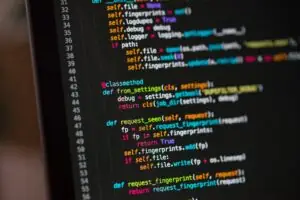The C programming language provides a versatile platform for various applications, from operating systems to simple algorithms. One of the foundational aspects of C programming is the management and utilization of arrays. In this article, we will delve deep into how to print an array in C using various methods, including for loops, while loops, and even recursion.
Introduction to Arrays in C
Before we jump into the methods of printing an array, it’s essential to understand what an array is. In a C program, an array is a collection of elements of the same data type, stored in contiguous memory locations. These elements can be accessed randomly by indexing into the array. Arrays are instrumental when dealing with data sets or structures that need iterative operations.
Printing an Array using For Loop
A for loop in C has the structure:
for(initialization; condition; update)
{
// code to be executed
}
To print an array using a for loop, you would typically do the following:
#include<stdio.h>
int main() {
int array[5] = {1, 2, 3, 4, 5};
int i;
for(i = 0; i < 5; i++) {
printf("%d ", array[i]);
}
return 0;
}
This C program initializes an array with 5 integers and then prints each element sequentially.
While the for loop is the most common method to traverse and print an array, you can achieve the same with while loops and do-while loops. The structure of these loops is slightly different.
The While Loop & Do-While Loop
A while loop checks the condition before executing the code within its block:
while(condition)
{
// code to be executed
}
Unlike the while loop, the do-while loop checks the condition after executing the code, ensuring the code block is executed at least once:
do
{
// code to be executed
}
while(condition);
Implementing the Loops
Using these loops to print an array involves setting up a counter, just like in the for loop:
int i = 0;
while(i < 5) {
printf("%d ", array[i]);
i++;
}
The do-while implementation is similar but ensures that the array is printed at least once, even if the condition isn’t met initially.
Recursion and Printing Arrays
Another advanced technique to print arrays in a C program involves recursion. In recursion, a function calls itself to solve a bigger problem by solving smaller instances of the same problem.
Here’s a simple recursive function to print an array:
void printArray(int arr[], int start, int len)
{
if(start >= len)
return;
printf("%d ", arr[start]);
printArray(arr, start + 1, len);
}
This function prints elements of the array until it reaches the last element.
Conclusion
Printing an array in C, while seeming straightforward, can be achieved in various ways, each with its own use cases and advantages. From the traditional for loop to the more advanced recursive functions, the C programming language provides flexibility and efficiency. Remember that while the primary objective is to display the array elements, understanding the underlying algorithms and pseudocode can vastly improve your efficiency and proficiency in C programming. Whether you’re working
FAQ
Follow us on Reddit for more insights and updates.





Comments (0)
Welcome to A*Help comments!
We’re all about debate and discussion at A*Help.
We value the diverse opinions of users, so you may find points of view that you don’t agree with. And that’s cool. However, there are certain things we’re not OK with: attempts to manipulate our data in any way, for example, or the posting of discriminative, offensive, hateful, or disparaging material.